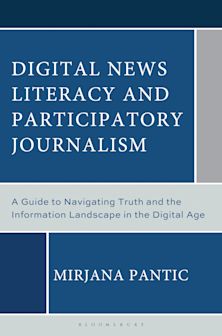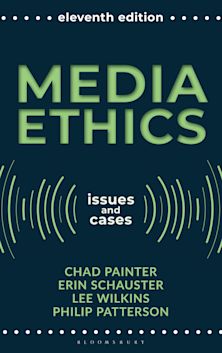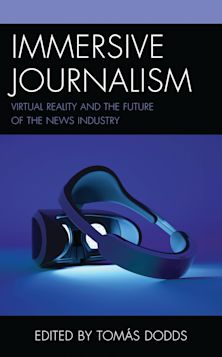Journalism in the Generation Z Age
Journalism in the Generation Z Age
This product is usually dispatched within 1 week
- Delivery and returns info
-
Free US delivery on orders $35 or over
Description
This book examines how Generation Z, defined by their orientation as “social media natives,” grew up in a media system centered around social media. D. Jasun Carr and Mitchell T. Bard explore how Gen Z consumes news media differently than other cohorts, and how this shift in consumption affects both the members of Gen Z, the media, and media scholarship. The authors take a media ecology approach to laying out the new media landscape in which Gen Z was raised, before looking at how this new ecology affects many of the traditional theories and underpinnings of media effects, media psychology, and journalism. Through the use of original experimental research and the compilation of extant theory and survey data, Carr and Bard argue that while members of Gen Z eschew the more traditional structures of the media ecosystem in favor of those that incorporate a social element, they nevertheless behave, in many ways, similarly to those who came before. Scholars of communication, media studies, social media, and journalism will find this book of particular interest.
Table of Contents
Chapter 1: The Foundations of a Discipline
Chapter 2: Generation Z: The “Never-Corded”
Chapter 3: How Generation Z Values, Consumes and Evaluates Journalism
Chapter 4: How Generation Z Members Choose Their News
Chapter 5: Fake News, Clickbait, and Trust
Chapter 6: Entertainment v News: The Fight for Political Knowledge and Participation
Chapter 7: The Kids Are Alright
References
About the Authors
Product details
| Published | Dec 18 2023 |
|---|---|
| Format | Hardback |
| Edition | 1st |
| Extent | 146 |
| ISBN | 9781793639943 |
| Imprint | Lexington Books |
| Illustrations | 1 Table |
| Dimensions | 9 x 6 inches |
| Publisher | Bloomsbury Publishing |
Reviews

ONLINE RESOURCES
Bloomsbury Collections
This book is available on Bloomsbury Collections where your library has access.


































